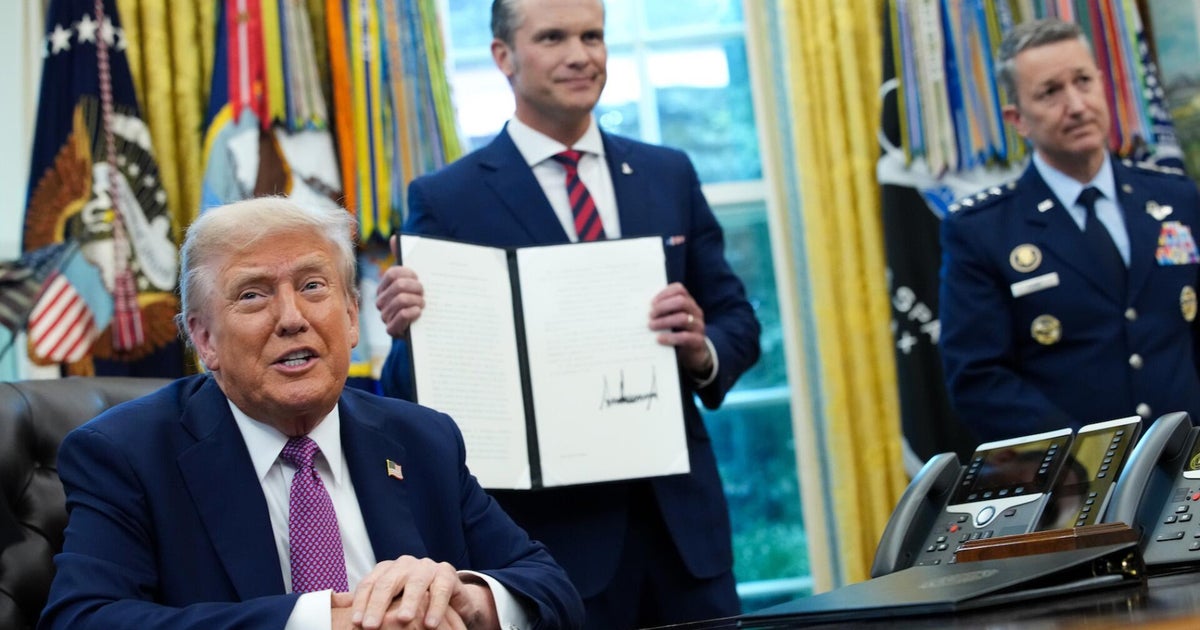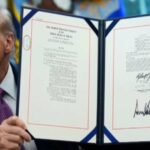In a bold move that harks back to the naming conventions of the early 20th century, President Donald Trump has recently signed an executive order initiating the process of renaming the Department of Defense back to its former title, the Department of War. This change revives the department’s original designation, which was last used in the late 1940s before transitioning to its current name in 1949 under the National Military Establishment Act.
The decision to revert to the Department of War is rooted in a variety of motivations, which include historical reverence, rhetorical adjustments, and policy implications. According to senior administration officials, President Trump believes the original name more accurately reflects the department’s true purpose and responsibilities.
Historical Context and Rationale
The Department of War was first established in 1789, tasked with the operation and management of the United States Army. It also held jurisdiction over various military matters until it was dissolved following the end of World War II. In the ensuing years, the growing complexities of national defense led to the need for a more comprehensively structured organization, culminating in the formation of what is now known as the Department of Defense.
By reverting to the original name, President Trump aims to emphasize and underscore the robust nature of the United States’ military capabilities. Some analysts interpret this move as an attempt by the White House to assert more straightforward and clear communication regarding the military’s primary objectives and functions.
Public and Political Reaction
The executive order has ignited a spectrum of reactions across the political and public spectrums. Supporters of the rebranding argue that the name “Department of War” straightforwardly delineates the department’s role in matters of national and global security. They contend that such clarity could lead to better governance and stronger policy measures in defense matters.
However, detractors express concern over the implications such a name might have on international diplomacy. Critics fear that the term “War” may project an unnecessarily aggressive image that could hinder diplomatic relations and complicate international collaborations. They argue that the term “Defense” better represents a commitment to peacekeeping and international stability, ideals they believe should be at the forefront of the Department’s agenda.
Legal and Bureaucratic Implications
The process of changing the department’s name involves a series of legislative and bureaucratic procedures that could take months, if not years, to finalize. The executive order is merely the first step in a long legislative journey that requires Congressional approval to come into effect.
Experts in governmental operations have highlighted the complexities involved in such a bureaucratic overhaul. Everything from official stationery and signs to legal documents and digital assets would need to be updated. Additionally, a revision of the legal frameworks and guidelines governing the newly named Department of War would be mandatory to align with its renewed identity and functions.
Analysis and Future Implications
The proposal to revert to the Department of War name is not just a logistical change but also a strategic redirection in the communication and reception of U.S. military policy both domestically and abroad. Some analysts suggest that this could lead to enhancements in military recruitment and public perception, offering a more unambiguous representation of the military’s role and capabilities.
Moreover, this change raises questions about the potential shifts in defense strategies and international military engagements. The semantic shift from “defense” to “war” could potentially realign public expectations and governmental directives regarding military activities and engagements.
Continuing Coverage and Further Developments
As the nation and the world react to this significant decision by President Trump, further details and implications of the executive order continue to unfold. Ed O’Keefe, covering this development, notes that key figures in the military and political arenas are meticulously analyzing the potential impacts of this change. Public forums, opinion pieces, and think tank panels are abuzz with debates and discussions about the future of the U.S. military’s role on the global stage.
As this story develops, it will be important to monitor how legislators respond to the President’s directive and how this decision will influence America’s defense policies and international relations in the years to come.
In conclusion, President Trump’s initiation of renaming the Department of Defense to the Department of War is a decision with deep historical roots and significant contemporary implications. Whether this change will strengthen or undermine U.S. military operations and international relations remains a subject of intense debate and analysis. The coming months will be crucial in shaping the trajectory of this pivotal shift in American defense policy.









